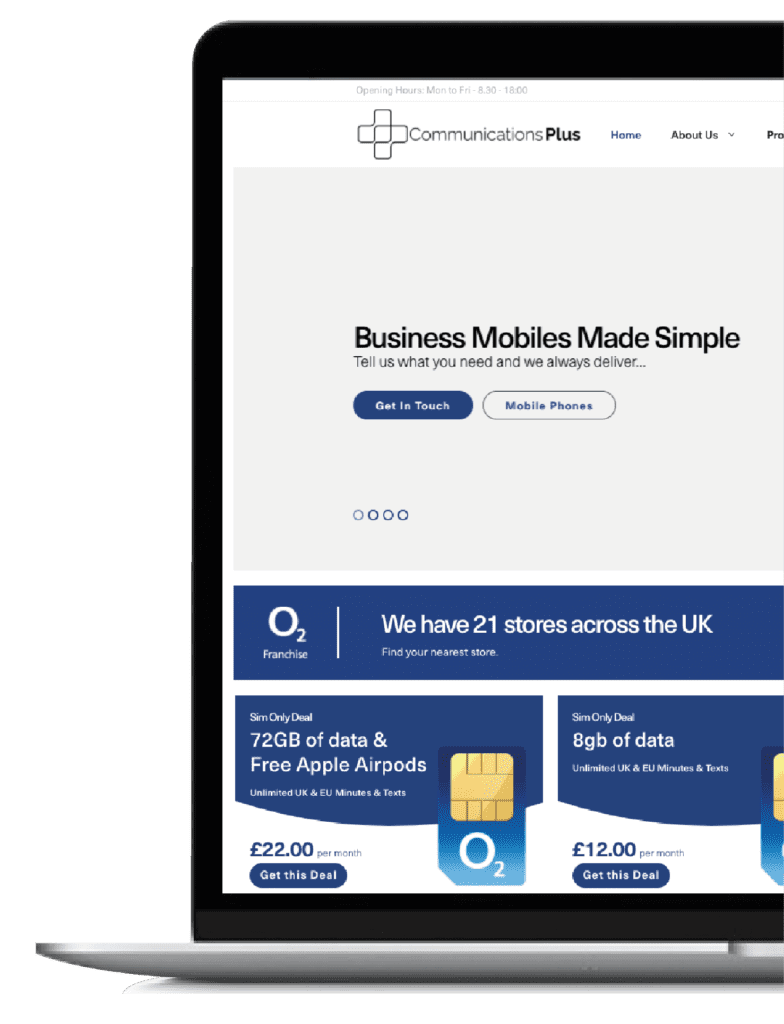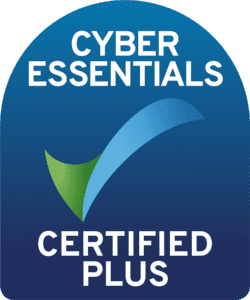We’ve all adapted to hybrid working in the last few years, but with offices reopening and people returning to a more structured way of working, the reality is nothing will go back to completely how it was before.
In reality, hybrid working is here to stay in some form or another and more people will continue working from home full-time, or splitting time between home and the office.
While the last few years have been about adapting to hybrid working, now is the time to start improving and optimising hybrid working so it continues working long into the future.
Part of this will be a switch in attitudes and a changing mindset to leave behind rigid structures.
But there’s also a need for better technology to fully make the most of the opportunity afforded to businesses now.
In this guide we’ll put a focus on the technology you should adopt in order to make the most of your hybrid working model.
Business broadband
If you’re running any business, especially a hybrid one, you need an internet connection that’s reliable and secure.
‘Residential’ broadband is fine for individual homes with a few devices.
But when you’ve got dozens – potentially hundreds – of devices trying to connect to your broadband, or send and receive large data files, business broadband is something to consider.
Business broadband comes with faster download speeds as standard that are capable of handling data heavy tools like video conferencing, VoIP telephone systems, and cloud based applications without suffering lag.
Unlike home broadband, business broadband connections are prioritised, so you don’t have to worry about competing with everyone else using the connection box on the street outside, because your connection will get access to the best speeds.
Business broadband also comes with faster upload speeds, which is important for businesses because it means you can send large data files without experiencing delays.
Cloud technology
The key to successful hybrid working is allowing employees to easily log on to their systems or access files and data no matter where they’re working from.
It’s also important that updates to documents and files occur in real-time to avoid the problem of duplicating work, while also allowing people to work on projects at the same time, from anywhere.
This is where cloud technology comes in.
Unlike working from a fixed desktop and hard-drive (which limits access to documents to one device) cloud technology puts your information in a secure environment that can be accessed by any authorised person.
Many popular business tools are already cloud based, like Google Documents.
Using a cloud platform, employees can easily access all their critical business information and documents from anywhere, on any device, using a simple login.
Any changes they make on a document on one device will be updated on the cloud so if they log in with a different device later, they’re still working on the most recent version.
This is also better for collaboration between teams because it means multiple people can access the same documents and make edits in real-time that are instantly viewable by everyone else.
All this saves time because employees don’t have to make and save changes on one device and then send a document to someone else to make more edits (hoping they’re working on the most recent version).
Hosted telephone systems/ VoIP
With employees now able to work from anywhere, one challenge has been retaining a centralised business phone number that makes it easy for customers to contact you – but that can be accessed no matter where an employee is working from.
Traditional business phone networks can’t handle this because they work on fixed phone lines running to an individual office and require an employee to be in that office to answer calls.
Voice over Internet Protocol (VoIP) solves this challenge by moving a company’s phone system away from a fixed line, onto an internet connection.
Much like a cloud platform allows people to work on documents from anywhere, VoIP lets people connect to a phone system using an internet connection and compatible device.
This serves a few purposes.
One, it means employees can answer a central phone number without having to be in the office.
Two, it allows them to answer calls on any device connected to the phone system – whether that’s a smartphone, a laptop or a tablet.
Plus, it increases the functionality of the phone system. It does this because VoIP puts all your voice, messaging and video calls into one place.
This means that employees can deal with multiple types of communication using one device, which saves time switching between devices, and also saves money on hardware costs.
Business communications
Being able to communicate with employees when they’re not in the office has always been important.
Whether it’s staying connected with sales people when they’re ‘in the field’, or when employees are out travelling between meetings.
When employees can spend days or weeks working out of the office (assuming they even spend any time working from an office) it’s even more important you and your customers can easily contact them.
The simplest answer is to use a mobile phone, but many employees aren’t comfortable giving their personal number to customers, or putting it on a website.
Using a personal phone number for work can remove the barrier between home and the office, making it difficult for employees to switch off at the end of the day.
The easiest way to solve this is to invest in dedicated business mobile phones.
With business phones, employees can take calls from customers during business hours, and turn the phone off at the end of the work day so they don’t have to worry about handling calls.
For a business, dedicated phones are also a more efficient – and safe – way to manage communications.
Unlike using a BYOD policy, you have full control over the devices being used in your business, and the applications being downloaded and used on them.
This removes the risk of employees creating security problems by downloading personal apps (or apps with low security) onto a device that’s connected to your business’ central systems.
It also makes it easier to connect your business’ devices to your systems, like a cloud platform or VoIP, because you can control access remotely to make managing your entire communications network easier.
Take control of your hybrid working with business tools from Communications Plus
There are a lot of parts that go into creating a successful hybrid business.
From getting the right mobile devices and hardware, to creating the right working environment that promotes communication and collaboration.
At Communications Plus we offer the complete set of enterprise tools you need to make a success out of your business.
From hardware and business mobile phones, to cloud technology and business broadband, to VoIP telephone systems, you can find what you need at Communications Plus.












